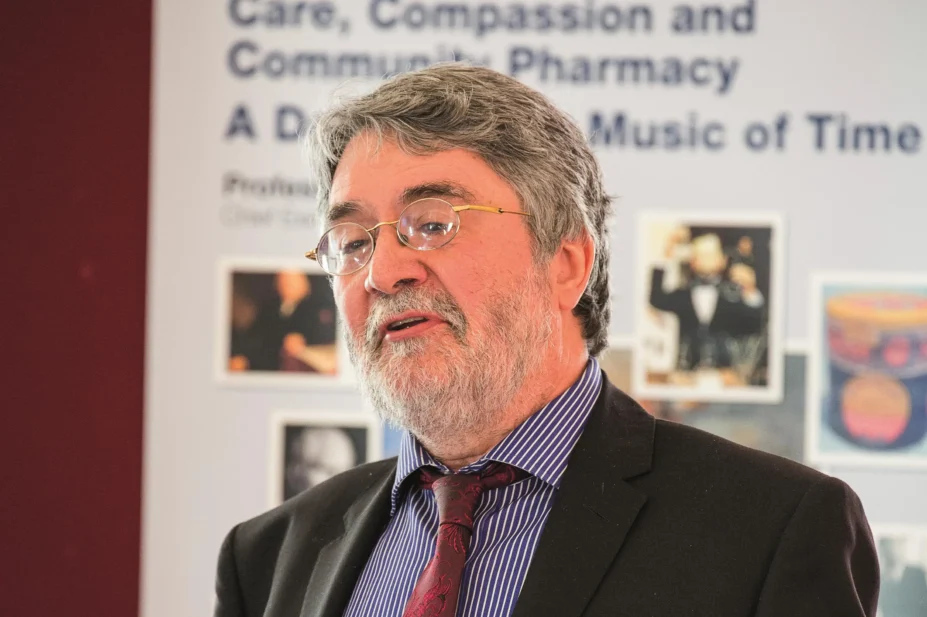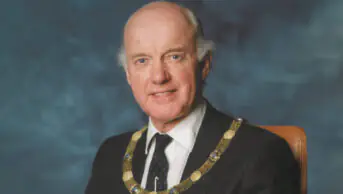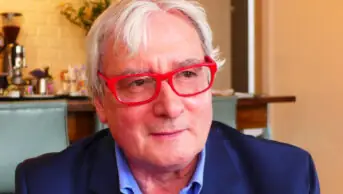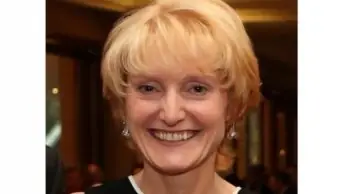
Courtesy of UCL
David Taylor, emeritus professor of pharmaceutical and public health policy at University College London School of Pharmacy, has died aged 78 years.
Born into a pharmaceutical family — his father was a research chemist at Allen and Hanburys and his mother was a hospital pharmacist — Taylor became a leader in promoting the importance of pharmacy in the field of public health.
His career spanned a broad range of roles, including deputy director of the Office of Health Economics (OHE) in the 1970s, where his work included improving access to health care and medicines in developing countries. Later roles included associate director of the Audit Commission for England and Wales, director of health affairs at the lobbying company GJW Government Relations, and Fellow at the King’s Fund.
In 2001, Taylor took up a chair as professor of pharmaceutical and public health policy at UCL, during which time he instigated the annual UCL, Royal Pharmaceutical Society (RPS) and National Pharmacy Association series of lectures, which are held every January at The Royal Society.
In 2008, Taylor received the RPS Synergy Prize for the non-pharmacist who contributed most to pharmacy, before being offered a lifelong membership to the Society two years later, in 2010.
During his career, Taylor held several roles in the NHS, including chairing a family practitioner committee and mental health trust. He also sat on the boards of Camden Primary Care Trust and the Centennial Roundtable Committee of the International Pharmaceutical Federation (FIP).
Taylor was part of a Royal College of Physicians Medicines Forum subgroup, which produced the 2011 report ‘N=1: Why people matter in medicines‘, which called for a greater emphasis on the patient voice when planning effective use of medicines.
He had a strong interest in cancer research as applied to public health policy. In 2020, he authored the ‘Cancer policy update: agenda for the 2020s‘, a UCL report that called for a proactive national cancer strategy. The report highlighted an opportunity for community pharmacies to act as early diagnosis hubs to help prevent cancer and to diagnose it in the earliest stages.
Described by friends and colleagues as someone on the side of social justice with a kindness and ability to connect with people from all walks of life, he was known for his sense of humour, as well as his great knowledge of his subject matter.
Claire Anderson, president of the RPS, said: “I knew David from when he joined what is now UCL School of Pharmacy in the early 2000s. I loved meeting him and discussing the state of pharmacy, public health, education and everything in between.
“While always challenging and thought provoking, David was also great fun. The annual January lectures at The Royal Society that he set up have become an institution, and he was sorely missed at the lecture [held on 15 January 2025], where it was lovely to give a tribute to him.”
An online tribute published on the UCL School of Pharmacy website said: “[David was] instrumental in introducing the subject of pharmaceutical public health into our academic lexicon.
“David worked tirelessly to emphasise the importance of pharmacy in progressing public health in the UK and internationally… [He] continued to be actively engaged with research and education during his retirement.
“He was hugely respected by colleagues for his kindness, support and dedication to his research and policy work.”
Taylor is survived by his wife, Jean; his children Ann and Luke; and his three granddaughters Amelia, Olivia and Penelope.
2 comments
You must be logged in to post a comment.
You may also be interested in

Philip Leon Marshall Davies (1938–2026)

Bill Scott OBE (1949–2025)

David was an extraordinary man i had the privilege to meet and listen to on many occasions. His insight into the importance of pharmacy in supporting public health and wellbeing always gave me inspiration. I sincerely hope the annual lecture he instigated can be renamed as the David Taylor Memorial Lecture in tribute to his contribution to the world of pharmacy and public health
I too would like to support this proposal as a fitting tribute to David’s relentless support to our profession and its development.
He was particularly supportive to me when I established the Barnet High Street Health scheme in our community pharmacies in 1991. This was one of the first schemes in the UK where community pharmacists could play an active role in providing public health services to the general public.